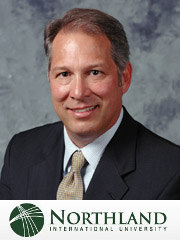An Open Letter from Dr. Matt Olson of Northland International University

Dear Friends in Ministry,
Thank you for your demonstration of true friendship over these past few months. So many of you have called, emailed, and written me. Yes, God has been doing great things. Yet, when He does, the pot gets stirred. Conflict often follows.
Discussion
Now, About Those Differences, Part Twenty One
 The entire “Now About Those Differences” series is available here.
The entire “Now About Those Differences” series is available here.
Discussion
A Critique of Dr. Bauder
Discussion
Now, About Those Differences, Part Twenty
 The entire “Now About Those Differences” series is available here.
The entire “Now About Those Differences” series is available here.
Differences in Application
Fundamentalists have agreed that Christians have no fellowship with those who reject the gospel. They have agreed that people who deny fundamental doctrines are apostates who must never receive Christian recognition. They have agreed that such apostates must be removed from Christian organizations and enterprises. If the apostates cannot be removed, fundamentalists have agreed that the organizations themselves must be deemed apostate. At some point, Christians have a duty to abandon the organizations and to begin new fellowships in which the integrity of the gospel is maintained.
While fundamentalists have agreed on these principles, they have often disagreed on certain points of application. What constitutes an expression of Christian fellowship? When does an organization become apostate? When is it time to shift from “purge out” to “come out” separation? Are there good, tactical reasons to stay in an apostate organization temporarily? Fundamentalists have given different answers to these questions.
More recently, fundamentalists and conservative evangelicals have also tended to answer these questions differently. Examples are abundant and, in some cases, matters of public dispute. Albert Mohler was willing to join Roman Catholics in signing the Manhattan Declaration. He was willing to help sponsor the Billy Graham Crusade in Louisville. Southern Baptist Seminary (president Al Mohler, board chairman Mark Dever) dedicated a pavilion to Duke McCall, the “moderate” president under whose leadership heterodoxy flourished in that institution. For all his criticism of Open Theism, John Piper has not led Bethlehem Baptist Church out of the Baptist General Conference (now Converge Worldwide).
Discussion
Now, About Those Differences, Part Nineteen
 Read Part 1, Part 2, Part 3, Part 4, Part 5, Part 6, Part 7, Part 8, Part 9, Part 10, Part 11, Part 12, Part 13, Part 14, Part 15, Part 16, Part 17, and Part 18.
Read Part 1, Part 2, Part 3, Part 4, Part 5, Part 6, Part 7, Part 8, Part 9, Part 10, Part 11, Part 12, Part 13, Part 14, Part 15, Part 16, Part 17, and Part 18.
Applying Separatist Principles
Fundamentalism 101 is pretty clear. It teaches that the gospel is the boundary of the Christian faith, the Christian community, and of Christian ministry. Spiritually, Christians hold nothing in common with people who deny the gospel. Therefore, Christians must never extend Christian recognition or fellowship to people who deny the gospel.
Some people deny the gospel explicitly. Perhaps they are adherents of pagan religions. Perhaps they are atheists. At any rate, they are easily recognized for their denials of the gospel. They reject Christianity altogether and without pretense.
Other people, however, claim to affirm the gospel even though they deny teachings that are essential to it. Such essential teachings are known as fundamentals. To deny a fundamental is to deny the gospel itself, and to deny the gospel while claiming to be Christian is just as serious as rejecting Christianity altogether.
In fact, it is more serious. To deny the gospel while claiming to be Christian involves a level of duplicity and hypocrisy. The New Testament has much to say about people who do this. Paul mentions those who preach another Jesus, receive a different Spirit, and accept a different gospel (2 Cor. 11:4). In a different place, he anathematizes them (Gal. 1:6-8). John commands believers not to welcome such individuals or even to give them a civil greeting (2 Jn. 10). The entire epistle of Jude and the second chapter of Second Peter are directed against these people.
Discussion